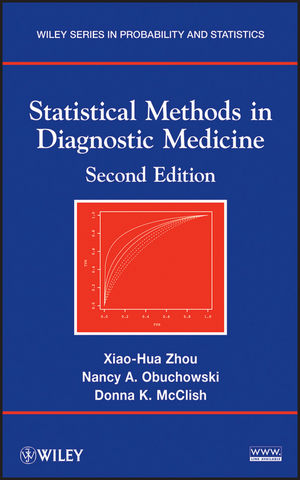Statistical Methods in Diagnostic Medicine, 2nd EditionISBN: 978-0-470-18314-4
Hardcover
592 pages
March 2011
 This is a Print-on-Demand title. It will be printed specifically to fill your order. Please allow an additional 15-20 days delivery time. The book is not returnable.
|
||||||
" . . . the book is a valuable addition to the literature in the field, serving as a much-needed guide for both clinicians and advanced students."—Zentralblatt MATH
A new edition of the cutting-edge guide to diagnostic tests in medical research
In recent years, a considerable amount of research has focused on evolving methods for designing and analyzing diagnostic accuracy studies. Statistical Methods in Diagnostic Medicine, Second Edition continues to provide a comprehensive approach to the topic, guiding readers through the necessary practices for understanding these studies and generalizing the results to patient populations.
Following a basic introduction to measuring test accuracy and study design, the authors successfully define various measures of diagnostic accuracy, describe strategies for designing diagnostic accuracy studies, and present key statistical methods for estimating and comparing test accuracy. Topics new to the Second Edition include:
-
Methods for tests designed to detect and locate lesions
-
Recommendations for covariate-adjustment
-
Methods for estimating and comparing predictive values and sample size calculations
-
Correcting techniques for verification and imperfect standard biases
-
Sample size calculation for multiple reader studies when pilot data are available
-
Updated meta-analysis methods, now incorporating random effects
Three case studies thoroughly showcase some of the questions and statistical issues that arise in diagnostic medicine, with all associated data provided in detailed appendices. A related web site features Fortran, SAS®, and R software packages so that readers can conduct their own analyses.
Statistical Methods in Diagnostic Medicine, Second Edition is an excellent supplement for biostatistics courses at the graduate level. It also serves as a valuable reference for clinicians and researchers working in the fields of medicine, epidemiology, and biostatistics.



